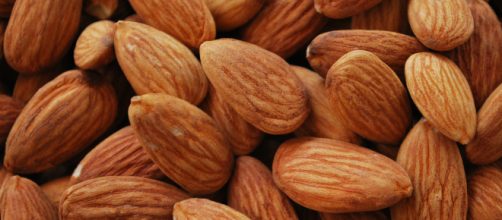Most people would probably say they know vitamins are good for their overall health. However, what vitamins specifically do in the body and what foods are rich in each Vitamin isn’t widely known among the general public. “Vita,” which means “life,” is the Latin root of the word “vitamin.” Vitamins are essential for many functions in our body. Vitamin E is especially important when it comes to disease prevention, specifically Heart Disease. Vitamin E is also praised for its role as an antioxidant.
Powerful antioxidant
Free radicals are dangerous compounds formed in the body when there is a lot of Oxidative Stress.
Oxidative stress can be caused by a number of things, like smoking, high altitude, and radiation. Oxidative stress is tied to various diseases, like cancer, heart disease, and stroke. Certain organs and tissues of the body, including the lungs, brain, and red blood cells, are more prone to this oxidation than others. Vitamin E is a potent antioxidant source that can help prevent oxidative stress.
Disease prevention
Vitamin E is involved in the anti-inflammatory processes, strengthening the immune system, and preventing disease. It has gained special recognition for its role in fighting heart disease, cancer, mental decline, and eye disorders. Vitamin E may help to prevent or delay heart disease by inhibiting a major step in the initiation of atherosclerosis.
There are different forms of vitamin E, but the most common type, which is called alpha-tocopherol, has been found to inhibit cancer cell growth. Another form inhibited prostate cancer cells. On top of its cancer and heart disease prevention properties, studies have shown that vitamin E may slow the progression of Alzheimer’s Disease. Lastly, vitamin E may help treat or prevent eye disorders, such as macular degeneration and cataracts.
How much is recommended and what foods is it in?
According to the Food and Nutrition Board, the recommended intake of vitamin E for adults ages 14 and over is 15 mg a day. To put things into perspective, a one ounce serving of almonds (about 23 almonds) has 6.8 mg of vitamin E in it.
Most people can get plenty of vitamin E from their daily diet, so supplements are usually not necessary. Nuts and seeds, as well as their oils, are the best sources of vitamin E. Some fruits and vegetables like peaches, asparagus, spinach, and broccoli contain a small amount of vitamin E, but the richest sources are nuts and seeds. The nuts and seeds with the highest vitamin E content are sunflower seeds, almonds, hazelnuts, and peanuts.
So next time you’re hungry for a snack, grab some almonds or sunflower seeds and enjoy all the benefits of vitamin E.


